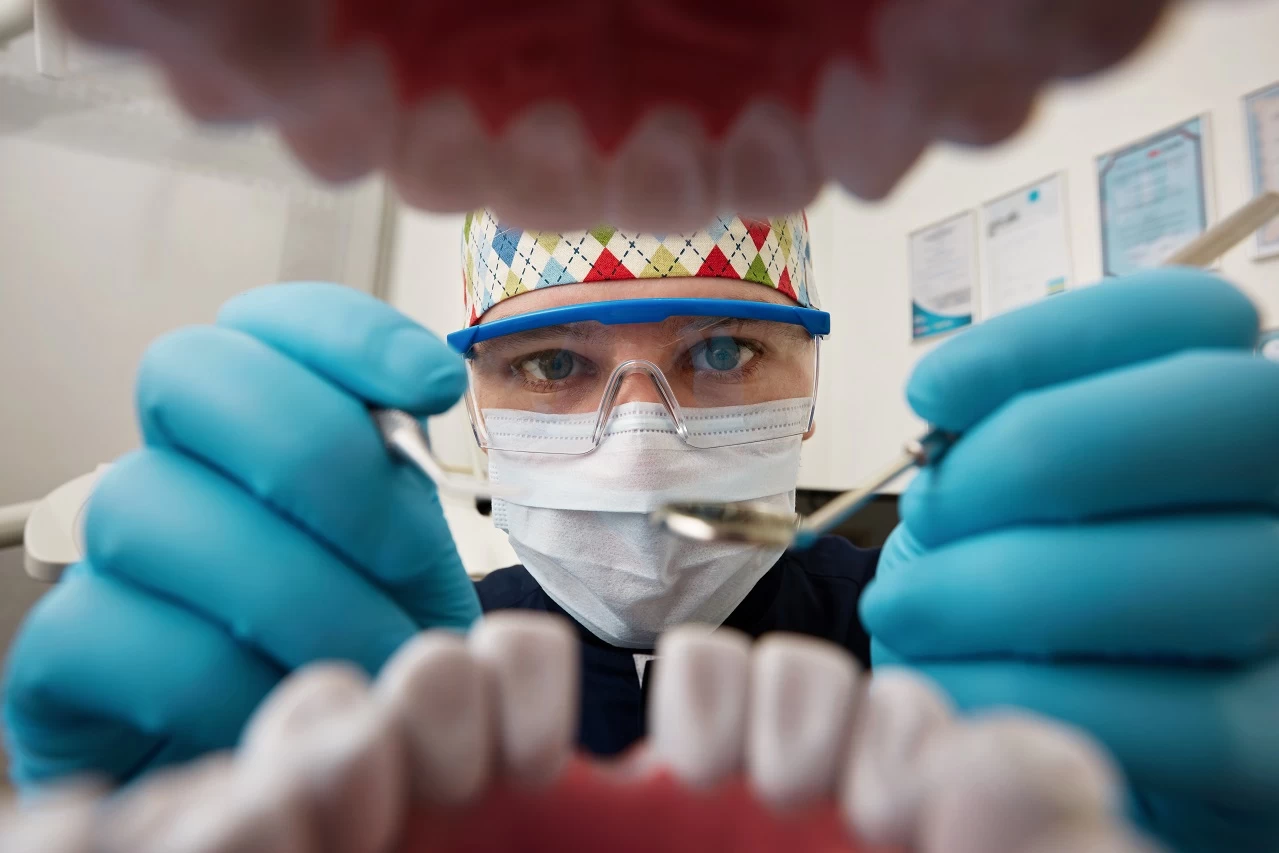
Periodontal Diseases and Their Effects on Blood Sugar
- Periodontal Diseases and Their Effects on Blood Sugar
- 1. The Relationship Between Periodontal Diseases and Diabetes
- 2. Mechanism of How Periodontal Diseases Raise Blood Sugar Levels
- 3. The Effect of Diabetes on Gum Health
- 4. The Effect of Blood Sugar Control on Gum Health
- 5. How Periodontal Treatment Affects Blood Sugar
- 6. Recommendations for Gum Health and Diabetes Management
- Conclusion
As a periodontologist, I observe every day that gum health is not only limited to oral health but affects the health of our entire body. The effects of periodontal diseases, especially periodontal (gum) inflammation, on various systems in the body are quite extensive. I have been researching and writing international articles on the interaction between blood sugar levels and periodontal diseases in diabetic individuals for nearly twenty years. In this article, I wanted to provide a brief introduction to the effects of gum diseases on blood sugar, that is, their bidirectional relationship with diabetes.
1. The Relationship Between Periodontal Diseases and Diabetes
Diabetes is a chronic disease affecting millions of people worldwide, causing difficulties in maintaining balanced blood sugar levels. The relationship between diabetes and periodontology is bidirectional; while diabetes increases the risk of periodontal disease, periodontal diseases make it more challenging to control diabetes. In individuals with diabetes, the body's defense systems weaken, and the wound healing process is delayed. This makes the gum tissues more susceptible to infections and increases the risk of developing periodontal diseases. Similarly, an active gum infection weakens our ability to control diabetes, causing blood sugar levels to rise more rapidly and making them difficult to manage. This dual effect can lead to long-term and serious complications for the overall health of patients.
2. Mechanism of How Periodontal Diseases Raise Blood Sugar Levels
To understand how gum diseases affect blood sugar, we first need to look at the development process of the disease. Periodontal disease begins with the accumulation of bacterial plaque. Over time, this plaque causes inflammation in the gums. The bacteria not only affect the gum tissues but also cause the body's defense cells to concentrate in this area. As an immune response, inflammatory cells sent to the region secrete chemicals such as cytokines, which mix into the bloodstream and increase systemic inflammation levels. As a result of this inflammatory response, insulin resistance can develop. Insulin resistance causes the cells to be unable to use glucose effectively, leading to elevated blood sugar levels. Therefore, chronic inflammatory conditions such as periodontitis reduce insulin sensitivity in the body and make blood sugar regulation more challenging. Thus, individuals with periodontal diseases not only have an increased risk of developing diabetes but also find it difficult to control their blood sugar levels.
3. The Effect of Diabetes on Gum Health
In diabetic individuals, the development of oral infections occurs more rapidly. High blood sugar levels create a suitable environment for bacteria in the mouth to multiply quickly. Additionally, dry mouth is common in diabetic patients, reducing the protective barrier provided by saliva. Normally, saliva has a protective effect against bacteria; however, when reduced due to diabetes, gum tissues become more vulnerable. Another issue caused by diabetes is changes in blood vessels. In diabetic individuals, blood vessels thicken over time, preventing periodontal tissues from receiving adequate oxygen and nutrients. As a result, resistance to infections decreases, and the healing process of gum tissues is prolonged. This weakened tissue healing causes periodontal diseases to progress more rapidly and leads to severe gum problems.

4. The Effect of Blood Sugar Control on Gum Health
When diabetes is under control, the course of periodontal diseases also improves. Research shows that regular control of blood sugar levels is effective in stopping or slowing the progression of gum diseases. Maintaining good blood sugar levels in diabetic individuals is crucial for oral health. As I have observed, gum infections become easier to treat when blood sugar is under control. During periodontal treatment, it is very important to regularly monitor blood sugar. For example, deep gum cleaning treatments such as professional dental scaling and root planing can cause sudden increases or decreases in blood sugar levels. Therefore, I frequently refer my patients to diabetes check-ups during periodontal treatment.
5. How Periodontal Treatment Affects Blood Sugar
Interestingly, periodontal treatment can also yield positive results in diabetes management. Various studies have shown a significant improvement in blood sugar levels in diabetic individuals who receive periodontal treatment. The underlying mechanism of this effect is the elimination of the source of infection and the reduction of systemic inflammation. With periodontal treatment, inflammation in the gums decreases, lowering the levels of inflammatory chemicals in the bloodstream and increasing insulin sensitivity.
6. Recommendations for Gum Health and Diabetes Management
As a periodontologist, I recommend the following to diabetic patients regarding oral and dental health:
- Regular Dental Check-ups: It is important for diabetic individuals to visit the dentist at least twice a year for early diagnosis of gum diseases.
- Good Oral Hygiene: Daily brushing and flossing play a critical role in maintaining oral hygiene. In particular, plaque accumulation must be controlled in diabetic individuals.
- Quitting Smoking: Smoking weakens gum tissues and increases the risk of infections. This is even more harmful for diabetic individuals. Quitting smoking is an important step for both gum health and blood sugar control.
- Healthy Nutrition: Maintaining a diet that keeps blood sugar levels stable helps gum tissues be more resistant to infections.
- Regular Diabetes Control: Regular monitoring of blood sugar levels in diabetic patients has positive effects on gum health.
Conclusion
Maintaining gum health is an important factor that affects not only oral health but also overall health. Periodontal diseases make diabetes more complex by making blood sugar control difficult. At the same time, diabetes increases the susceptibility to gum diseases. Therefore, regular periodontal treatment and oral hygiene habits are crucial in diabetic patients. Early diagnosis and regular follow-ups of periodontal diseases are essential to contribute to blood sugar control and improve quality of life. In light of this information, I remind all my patients who want to protect their gum health to pay attention to regular oral and dental health check-ups. Gum health should be seen as an indispensable element not only for aesthetics but also for health.

Prof. Dr. Eser Elif Acarel
Periodontologist





